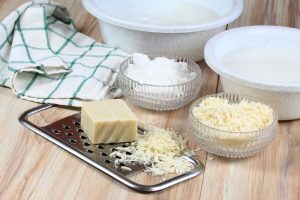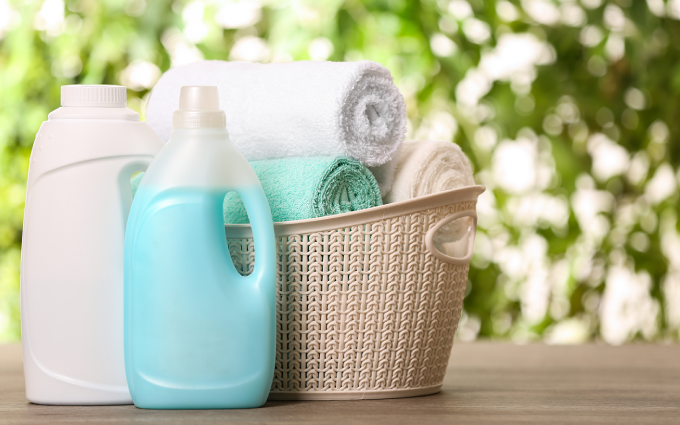Benefits of Enzyme Based Detergents
How Enzyme based Detergents Are Superior to Alkaline Detergents.
Bar soaps made with lye and animal fat dominated the detergent market for hundreds of years. Synthetic soaps didn’t even appear on the market until the middle of the 20th century. Now, detergent options seem almost endless. You can buy it in powder, liquid and even pod form; chemical-based or organic, perfumed or scent-free; or if you have the time and wherewithal, you can even purchase supplies online to craft your own. Adding to all these decisions, you can now consider how enzyme or alkaline detergents could help make laundry day a breeze. Below, we outline why we think enzymes are the way to go.
What Is the Difference?

Alkalies exist in most laundry detergents. They are soluble salts that mix with a base and then react with an acid to remove dirt and grime. Baking soda, borax and lye are the most common types of alkalies found in modern detergents, which are quite a step up from the plant ashes previously used. While they vary in strength, they all work to remove stains and are particularly effective at getting rid of grease. By forming an emulsion of oil and solids, they help lift smudges out of the fabric, suspending them in the water until the rinse cycle comes along to whisk them away. Enzymes, on the other hand, are extremely versatile cleaners. Different enzymes target different types of stains and deconstruct them naturally. They tend to be gentler on fabrics than harsh alkalies.
Which Enzymes Should I Use?
The Economy of Enzymes

Not only are enzymatic detergents more versatile, but they are less picky about their environment as well. Alkaline detergents require much higher temperatures to be effective and work better with more vigorous scrubbing. Enzymatic detergents are active at low temperatures while also remaining stable in high heat. They remain active in the presence of common detergent additives, like oxidants and surfactants. They are compatible with a wide variety of fabrics and do not degrade material as quickly as an alkaline detergent might. As a result, a much lower quantity of enzymatic detergent is required than alkaline detergent to get the same job done. Using less detergent and at a lower temperature not only saves money, but is as gentle on the environment as it is on your skin.
Lower Carbon Footprint

Using enzymes to break down unwanted waste is also a part of the concept of “white biotechnology.” The goal of this branch of biotech is to develop and use products that require less energy, create less waste and bypass the use of fossil fuels in favor of renewable resources. Enzymatic cleaners are more environmentally friendly and biologically degradable than alkaline detergents. Especially when adopted by large-scale industries like healthcare and food service, enzymatic detergents have the potential to reduce CO2 emissions by a whopping 2.5 billion tons annually. Enzyme detergents are superior to alkaline detergents not only in basic function, but in terms of the “big picture” as well. They remove stains in a quick and efficient way, saving money and time while preserving the integrity of fabrics. They also support a sustainable future by producing a much lower carbon footprint than their alkaline counterparts. Enzymes are a versatile, economical, environmentally friendly choice for effectively cleaning fabrics.

